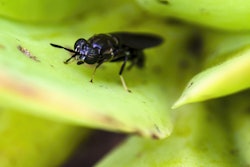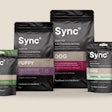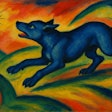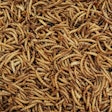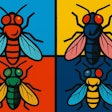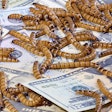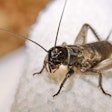
Insect-based ingredients have emerged as novel, sustainable pet food protein and oil sources. Although dogs, cats and many other species of pet have been snacking on insects forever, a growing body of research provides evidence that arthropods can be safe, nutritious additions to the pet food formulator’s toolkit. For example, one study aimed to assess the nutritional quality and health effects of including black soldier fly larvae (BSFL) meal in dry extruded food for adult cats. The Journal of Insects in Food and Feed published the results.
In the experiment, researchers with Wageningen University and insect-based pet food ingredient supplier Protix compared two diets. One recipe contained 37.5% BSFL meal, while a control diet was made with poultry meal. Eight cats ate each diet for 28 days, then switched to the other. The study measured food acceptance, nutrient digestibility, fecal characteristics, and health markers such as blood biochemistry and hematology.
Both formulations were well-accepted by the cats, with no significant differences in palatability. Feces from cats consuming the BSFL meal-based food were well-formed and showed optimal consistency scores. While the digestibility of dry matter, organic matter, nitrogen and energy for the BSFL-based food was lower than the control diet, the nutrient digestibility levels were still considered nutritionally suitable according to established FEDIAF guidelines.
Insect-based cat food affected gut microbiome
While the insect-based ingredients seemed similar with poultry meal nutritionally, the inclusion of BSFL meal did have a significant effect on the cats' intestinal microbiota. The study noted increased fecal short-chain fatty acids and biogenic amines, indicating increased microbial activity. Additionally, shifts in bacterial composition were observed, with an increase in beneficial genera such as Bifidobacterium, associated with gut health. However, the BSFL meal diet also resulted in reduced microbial diversity, which typically correlates with negative gut health outcomes. The researchers suggested that the interaction of insect-based ingredients and cat microbiomes requires further investigation.
As in previous studies, insect-based meals in this experiment provided digestibility levels comparable to conventional protein sources. However, the presence of chitin in BSFL meal may contribute to its lower digestibility compared to poultry meal.
The study concluded that BSFL meal is a viable alternative protein source for dry cat food. It supports healthy digestion, maintains optimal fecal consistency, and is generally well-accepted by cats. Additionally, the microbiota shifts observed suggest that BSFL meal inclusion could influence feline gut health, although more research is needed to fully understand these effects, especially in cats with specific gut health conditions.
As insect-based pet food ingredients continue to grow in popularity, more research may shed light how the ingredients influence cat microbiomes along with other health parameters.


